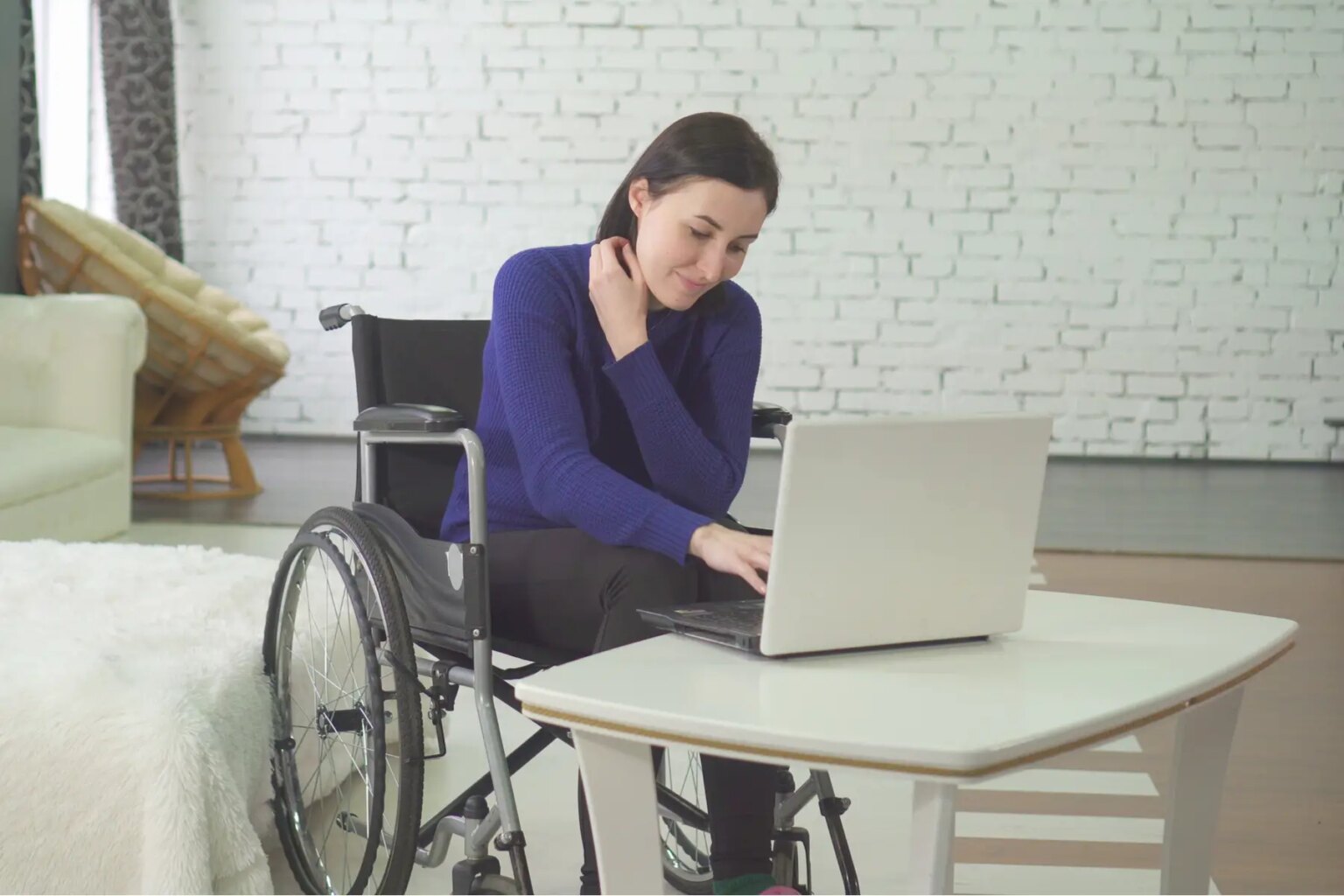Austria’s robust and broad social security program makes it an appealing destination for expats looking to move abroad. Whether you are having your first child, starting a business, or becoming a freelancer, there are plenty of insurance options that are on par with regular employment. Furthermore, the government and political system are protective of women’s rights, while the labor laws are fair and child benefits are generous and supportive. Therefore, it’s hardly surprising that many expats who choose to move to Austria decide to stay there for life.
Get an overview of social security in Austria, including the following information:
- Social security in Austria
- Receiving social security in Austria as an expat
- Unemployment benefit in Austria
- Health insurance in Austria
- Pensions in Austria
- Education in Austria
- Maternity, paternity, and parental benefit in Austria
- Disability/survivors benefits in Austria
- Universal schemes
- Social security for freelancers and the self-employed in Austria
- Social security in Austria for part-time workers, low earners, and students
- Private social security options in Austria
Cigna Global
Want access to the best private medical services in Austria? Speak to the healthcare professionals at Cigna Global today and find a policy that’s right for you. Take advantage of their global network of doctors, specialists, therapists and more with coverage tailor-made for you and your family. If you’re starting a new life in Austria, get peace of mind with Cigna Global.
Social security in Austria
Fortunately for expats, Austria offers a high-level social security system that is contribution-based. The Federal Ministry of Labour, Social Affairs, and Protection oversees the system and it supports everyone who is gainful employment; as well as their dependents. In Austria, social security covers the following areas:
- unemployment
- health
- pensions
- education
- maternity/paternity/parental benefits
- disability/work accident/survivors benefits
In this guide, we provide an outline of how the system works as well as the universal schemes that every person in Austria is eligible for.
Who is eligible for social security in Austria?
Ordinarily, the Austrian social security system ties eligibility to current or former legal employment. In the case of tax-financed benefits, legal residence in Austria is also necessary. These include child benefits, unemployment, and long-term care. Fortunately, nationality is less important once a person has secured gainful employment. In fact, nearly one in five Austrian employees is foreign-born.
As a result, the country ranks high in foreign participation in the labor market. Under Austrian social security regulations, contributions depend on income up to a ceiling amount of €62,640 per year or €5,220 per month.
What are the options if you are not eligible for social security in Austria?
In Austria, there are public welfare benefits available from the federal, provincial, and municipal authorities for citizens not covered by the insurance system. If you find yourself in the small percentage of those not covered by social security, however, you may wish to investigate your private social security options. You can read on for more information about this. It is important to note that Austrians residing abroad cannot claim unemployment benefits in the country.
Who has to register for social security in Austria?
Generally, employees are subject to compulsory social security under the Austrian system. This is based on income for work mainly performed in Austria. Employers automatically register employees for social security insurance when they are hired.
Receiving social security in Austria as an expat
Impressively, Austria ranks sixth in the Quality of Life Index in 2020 with the country’s capital, Vienna, being named the world’s most liveable city for the second year running in the Economist Intelligence Unit (EIU) Index. Essentially, this is down to the impressive social security on offer, along with political stability, a low crime rate, and overall high quality of life. It is hardly surprising, therefore, that nearly a third of expats living in Austria consider staying there forever.
EU/EFTA nationals in Austria
In the EU, employees only pay social security contributions in one country. Therefore, the employee’s place of work and their country of residence will decide which country’s system applies to them.
Non-EU/EFTA nationals in Austria
For non-EU nationals, there are several countries that Austria has social security agreements with. However, some of these, such as Canada and the US, only cover pension insurance specifically. Others, like Serbia and Bosnia, have comprehensive social security agreements in place. Again, these agreements are linked to employment within Austria.
Unemployment benefit in Austria
In Austria, unemployment benefits (or Arbeitslosengeld) kick in if you lose your job and enter a state of unemployment. Additionally, this covers Notstandshilfe (unemployment assistance) which supports you if you still need help after your unemployment benefits have run out.

Umschulungsgeld (vocational retraining allowance) is also available in Austria. In this case, 100% of the unemployment benefit is paid until the first day of retraining; and then increased by 22%. The retraining allowance is paid until the end of the month of the last retraining measure. In Austria, vocational training is set at a minimum daily allowance of €35.33.
Notstandshilfe (emergency assistance) is income tested. In this case, 95% of the unemployment benefit is paid if the unemployment benefit is €909.42 a month or less. If the benefit is greater than €909.42 a month, then 92% to 95% is paid. However, this varies depending on the income and the number of dependents of the unemployed person. As of July 2018, the spouse or partner income is no longer a consideration. There is also no limit in terms of the duration.
Who can get unemployment benefits in Austria?
Typically, if you have worked for 52 weeks over the previous two years, you will qualify for unemployment benefits in Austria. Ordinarily, you will receive 55% of your income, for a period of 20 weeks. However, there are situations where the duration will increase. For example, if you have worked after completing vocational rehabilitation, you may be eligible for up to 78 weeks. Generally, this covers employed persons earning at least €460.66 a month, as well as apprentices.
But what happens when you are unemployed due to your own choice? Well, if you don’t have a good reason for leaving your job, there is a four-week waiting period for your benefits. Additionally, there is a six-week wait if you refuse a suitable job offer.
Unemployment benefit contributions in Austria
In Austria, the unemployment benefit contribution is 3% of monthly covered earnings. The rate is less for people with low incomes. The maximum monthly earnings are €5,130. Conversely, the minimum monthly earnings used to calculate contributions are €438.05. In all, the maximum benefit is 60% of the insured’s net earnings, which includes all supplements. This increases to 80% with the family supplement.
How to claim unemployment benefit in Austria
The Austrian Public Employment Service (AMS) is a government-tied labor agency that matches candidates with job openings and assists job seekers. Initially, you can register as unemployed through AMS. You can then apply for the unemployment benefit. After you set up your eAMS account, you can fill in your application online. Due to the COVID-19 pandemic, the AMS asks that no one comes to the office in person. Instead, they can send you an application form by post if you call the AMS office.
Health insurance in Austria
Fortunately, everyone who is residing within Austria’s borders is covered by health insurance. Every employee will pay a monthly contribution directly from their salary, while their employer will contribute a slightly higher percentage. Additionally, low-income and unemployed people are covered without any monthly payments. This is providing they meet the criteria. Typically, this is true for students, retired, and disabled persons as well.
For expats, health insurance is dependent on employment. Firstly, your employer will apply for your public health insurance on your behalf. Secondly, if you have any dependents, your employer will also enroll them. Thirdly, your E-Card (insurance card) will arrive from your insurance company. This keeps track of your claims, medications, and medical histories. You should take this with you to any medical appointments. Essentially, this is your health insurance card. For more information about health insurance, visit our Health insurance quotes page.
Pensions in Austria
Austria offers two types of pensions – contributory and non-contributory. Employers subtract 10.25% of the gross income as the employee’s contribution. Then, they add 12.55% as the employer’s contribution. There are also government contributions for certain people; for instance, those with care obligations for relatives with specific care needs, and those in military service.

Currently, the retirement age in Austria is 65 years for men and 60 years for women. That said, there are plans over the next decade for the standard retirement age for women to rise to the same level as men. In Austria, early retirement is possible – and common – for people who have accrued many contributory years. However, this does mean a monetary penalty in the overall pension. Conversely, people who work beyond the standard retirement age receive a bonus. To receive a pension, the minimum contribution is set at 15 years.
Education in Austria
Austria has an entirely free public school system and it is mandatory to have nine years of education in the country. Following that, all teenagers must continue school education. Alternatively, they may choose to go into Lehre (professional training) until they reach 18. For more information, read our guide to education in Austria.
Maternity, paternity, and parental benefit in Austria
Interestingly, in Austria, women are not allowed to work during the eight weeks leading up to their due date or for eight weeks after giving birth. Employed women get a Wochengeld (cash benefit) of their average earnings. This is due even if the mother has been employed for only three months at the time of conception.
Wochengeld does not depend on residence or nationality. This means that foreign residents can get maternity benefits in Austria. Women can also claim this benefit if they live abroad and fulfill the necessary conditions.
You can learn more about maternity leave and pay by reading our article on Austrian employment law.
Paternity benefit
For new fathers, Austria offers what it terms Familienzeit or ‘family time’. This consists of one month of unpaid leave after childbirth or adoption. Familienzeit is dependent on residency in Austria. The father must also live in the same household as the child. Additionally, he must have been working for 182 days and intend to return to his workplace.
Parental benefit
In Austria, parental benefits are also generous. Employed mothers have the right to receive paid leave until the day before the child’s second birthday. Remarkably, the mother can share this with the father. This can also be extended if a part-time absence from work is chosen instead of full-time. If both parents take leave, they can have a total of 1,063 days after the birth of the child. Of this, between 91 and 212 days have to be used by the other partner.

In terms of cash benefits, parents can choose between two different schemes. They can opt for a flat-rate scheme for mothers without their own income. Alternatively, they can choose an income-dependent scheme in which they can only receive benefits for up to one year after the birth of their child. For both, the main residence of the parents and the child must be Austria. Additionally, they must live in the same household. This is the same for both EU and non-EU foreigners living in Austria. New mothers also receive protection against dismissal during parental leave.
Disability/survivors benefits in Austria
Invaliditätspension (disability pension) is earnings tested. This means that the loss of earning capacity must be greater than 50%. Furthermore, the individual must have at least 60 months of paid or credited contributions (plus one month for each month since age 50) in the last 10 years (plus two months for each month since age 50), at least 300 months of paid or credited contributions; or a total of 180 months of paid contributions.
There is a reduction in the contribution requirements for anyone over 60 years of age. The pension is subject to recovery if the insured’s monthly earnings exceed €1,196.09. Importantly, the disability pension is payable abroad.

In Austria, you can also get credit for certain conditions. For example, time spent caregiving, in military service, or receiving sickness, maternity, or unemployment benefits. Furthermore, contributions may be paid retroactively for time spent training or in education.
The monthly minimum amounts are as follows:
- €909.42 for a single person with less than 360 months of paid contributions
- €1,022 for a single person with at least 360 months of paid contributions
- €1,363.52 for a married couple
- €140.52 for each child younger than age 18
- There is no limit for the disabled
In Austria, Hinterbliebenenpension (survivor pension) refers to the old-age or disability pension a person was eligible for at the time of death. Widow(ers) or same-sex partners, certain divorced spouses, and children younger than age 18 (or 27 if they are a student or in training) are all eligible. Notably, there is no limit for disabled children.
The minimum amount paid monthly is €909.42 for a widow(er) and €334.49 for a child up to age 24 (or €502.24 for a full orphan). Children older than 24 will receive €594.40, while full orphans get €909.42. The survivor pension is also payable abroad.
Universal schemes
Altogether, there are three major monetary social benefits that are guaranteed in Austria, regardless of income status. These include:
- family allowance and tax credit for children
- childcare allowance
- long-term care benefits
This means that all residents in Austria are eligible for these benefits.
Family allowance
Essentially, these are cash benefits for children in Austria. The amount depends on the age and number of children in each family.

The Family Burdens Equalization Fund (FLAF) finances the scheme, and the tax office distributes the funds.
Childcare allowance
Every mother and father in Austria can enjoy a childcare allowance. The Family Burdens Equalization Fund also funds this benefit. You can claim this for the first 12 months (14 months if also claimed by the second parent) up to 30 (36) months of the child.
Long-term care benefits
All residents in Austria are eligible for long-term care benefits. The amount depends on the extent of care that is necessary for each individual. Primarily, there are seven decision-making bodies at the federal level in this system, and tax revenue funds this benefit.
Social security for freelancers and the self-employed in Austria
If you are a freelancer or starting your own business in Austria, you’ll want to look into insurance benefits. Essentially, there are specific criteria that you must meet in order to qualify for social insurance as a self-employed person.

As per the Commercial Social Insurance Act (GSVG), you have social insurance if you are self-employed and do not have a trade license; for example, you are a physiotherapist or artist. To qualify, you must generate tax income from your work. Furthermore, your income must be above a certain limit. Your social security insurance will include pension, health, accident, and self-employment provisions.
You can also take out voluntary unemployment insurance in Austria. The voluntarily insured can choose between a monthly flat-rate contribution. This can be of either €89.78, €179.55, or €269.33. You can find out everything you need to know about this at the Social Insurance Institute for Self-Employed Persons (SVS). However, it is best to contact an insurance advisor to discuss your specific situation.
In essence, there is one difference between self-employed and regular unemployment insurance: your registration and deregistration are not automatic. Therefore, you will need to submit a report to the SVS.
For more information, refer to the special regulations for certain professional groups on the SVS website.
Social security in Austria for part-time workers, low earners, and students
Fortunately, if you are studying in Austria from another EU country, you will have social security. Notably, students from EU or EEA countries who have health insurance in their home country are insured in Austria. Conversely, students who don’t have health insurance may apply for self-insurance in Austria. Importantly, they must be living in Austria.

As of January 2020, the rate of contribution is 7.55% of the basis for contributions. In some cases, you can reduce the monthly contributions for self-insurance. Additionally, students may co-insure their spouses and children.
Generally, contributions for voluntary insurance are €440.32 per month. You can reduce your contributions with proof. These include tax assessments, wage slips, a savings book, and maintenance payments. Self-insured persons are eligible for non-cash benefits. These include doctor’s assistance, institutional care, and obstetrics. However, sickness benefits and maternity benefits are cash benefits and do not apply.
The Österreichische Gesundheitskasse (ÖGK) is the largest social health insurance company in Austria. It offers insurance protection regardless of age or income.
In Austria, low-income earners also have guaranteed resources. As of 2019, the minimum standards were €885 for a single person and €664 per person for a couple. If this applies, you qualify for minimum resources. You will need to submit proof of income and statements of assets. You can do this at your district administrative authority where you live.
Private social security options in Austria
In addition to these mandatory schemes, employees can take out a private pension in Austria. However, because public insurance is so broad, it is not the norm to do so.
There are many private health insurance providers in Austria. The leading groups are Allianz Care and Cigna Global. Both offer a range of plans to suit all people and situations. Generally, the older you are the more you will pay. For example, a plan for children below 18 could cost around €30 per month. However, the same plan for someone above 65 may cost as much as €450 to €500 per month. Additional factors include both gender and pre-existing conditions.






